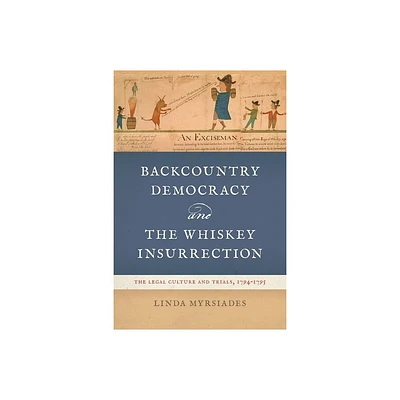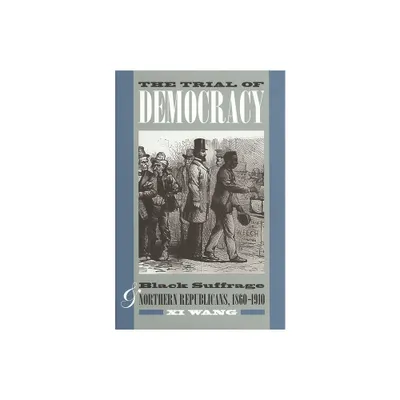Home
Backcountry Democracy and The Whiskey Insurrection: Legal Culture Trials, 1794-1795
Loading Inventory...
Barnes and Noble
Backcountry Democracy and The Whiskey Insurrection: Legal Culture Trials, 1794-1795
Current price: $49.99


Barnes and Noble
Backcountry Democracy and The Whiskey Insurrection: Legal Culture Trials, 1794-1795
Current price: $49.99
Loading Inventory...
Size: Audio CD
*Product Information may vary - to confirm product availability, pricing, and additional information please contact Barnes and Noble
Backcountry Democracy and the Whiskey Insurrection
treats the legal culture that informed the Whiskey Rebellion of 1794 and its trials. Linda Myrsiades examines conflicts between state and federal courts and the judicial philosophy of Federalist judges, as well as grand jury charges, law reports, judges’ bench notes, and defense notes for the trials, to develop a portrait of the hegemony of official interpretations of the law. At the same time, the book illuminates popular attitudes about the courts and the law and explores the nature of extralegal courts operated by the people.
Myrsiades captures the agitation-propaganda efforts mounted by rebel communities and groups together with petitions and speeches in the rebel assemblies in demonstrating that popular culture offered a clear politico-legal justification within the rebel movement on the unofficial side of legal culture. Myrsiades thus presents a holistic picture of the legal culture of the rebellion. Her examination denies the common perception that the rebel movement was incoherent and chaotic and presents an alternative view that its perceptions are a necessary correlative to understanding how treason law functioned and what its critical elements were in the late-eighteenth century, serving as a lesson for democracy in the present era.
treats the legal culture that informed the Whiskey Rebellion of 1794 and its trials. Linda Myrsiades examines conflicts between state and federal courts and the judicial philosophy of Federalist judges, as well as grand jury charges, law reports, judges’ bench notes, and defense notes for the trials, to develop a portrait of the hegemony of official interpretations of the law. At the same time, the book illuminates popular attitudes about the courts and the law and explores the nature of extralegal courts operated by the people.
Myrsiades captures the agitation-propaganda efforts mounted by rebel communities and groups together with petitions and speeches in the rebel assemblies in demonstrating that popular culture offered a clear politico-legal justification within the rebel movement on the unofficial side of legal culture. Myrsiades thus presents a holistic picture of the legal culture of the rebellion. Her examination denies the common perception that the rebel movement was incoherent and chaotic and presents an alternative view that its perceptions are a necessary correlative to understanding how treason law functioned and what its critical elements were in the late-eighteenth century, serving as a lesson for democracy in the present era.


















